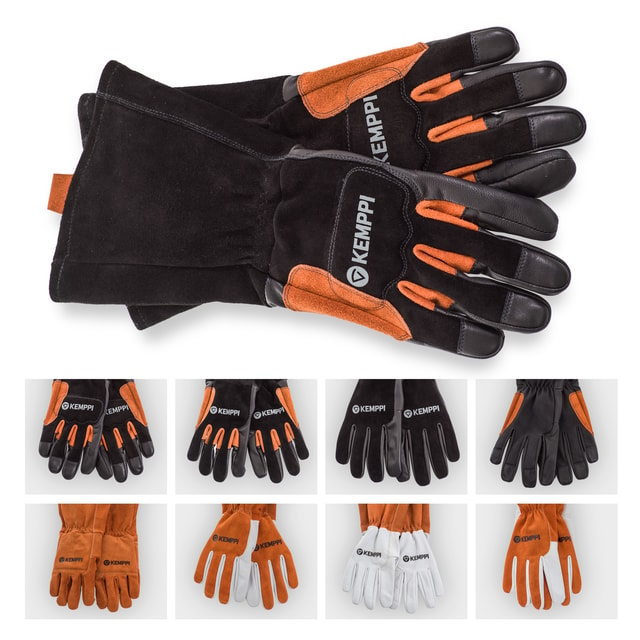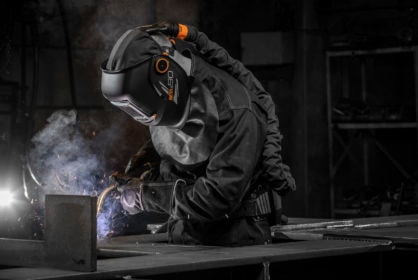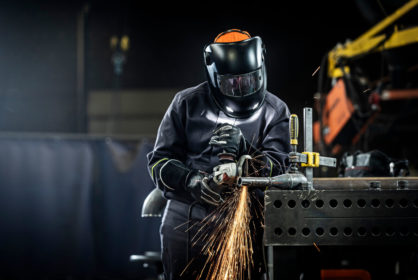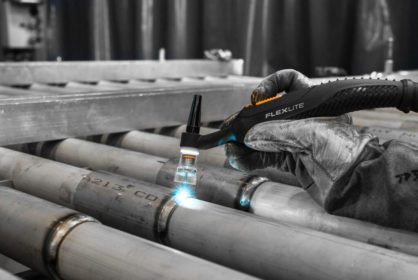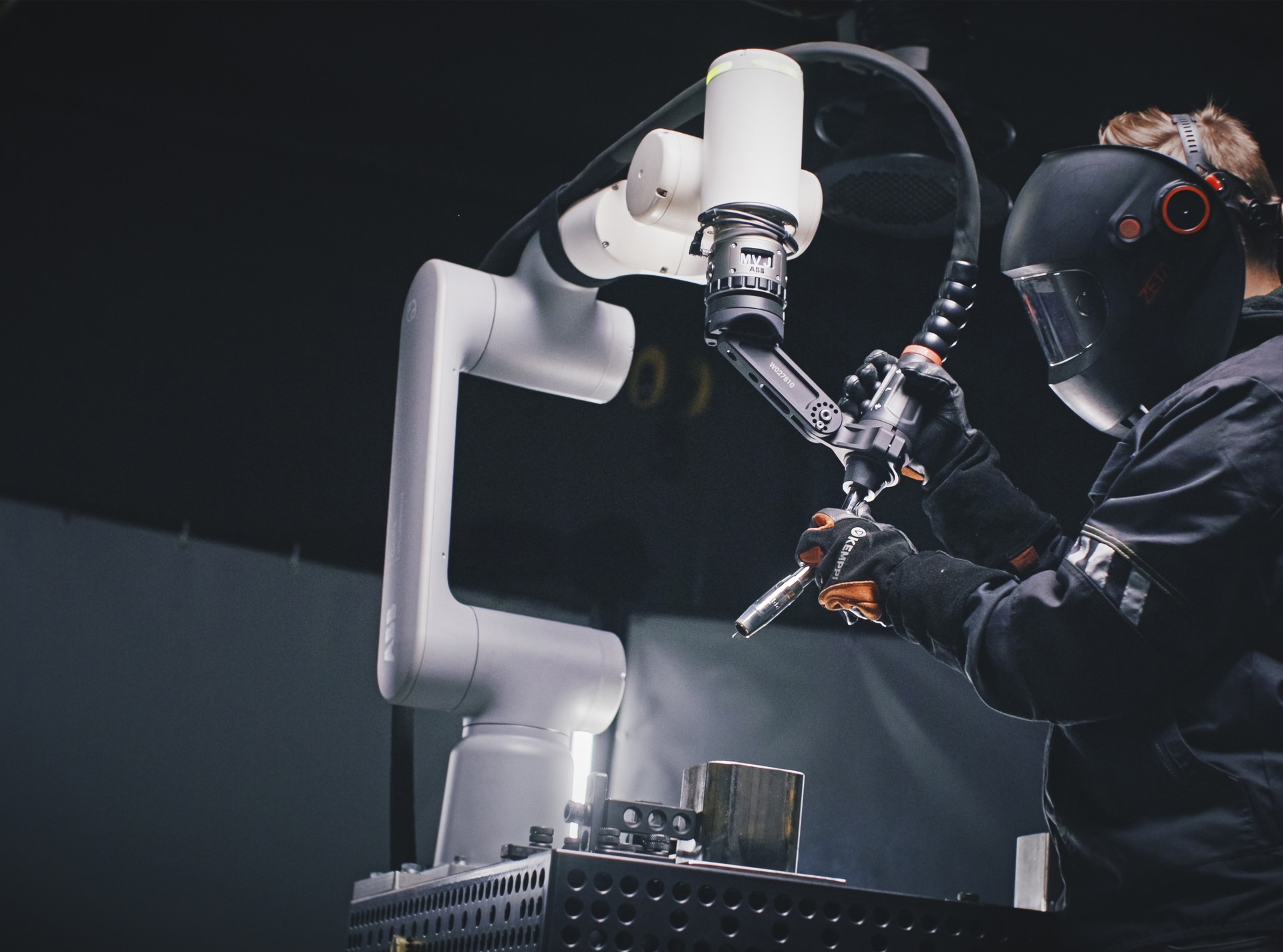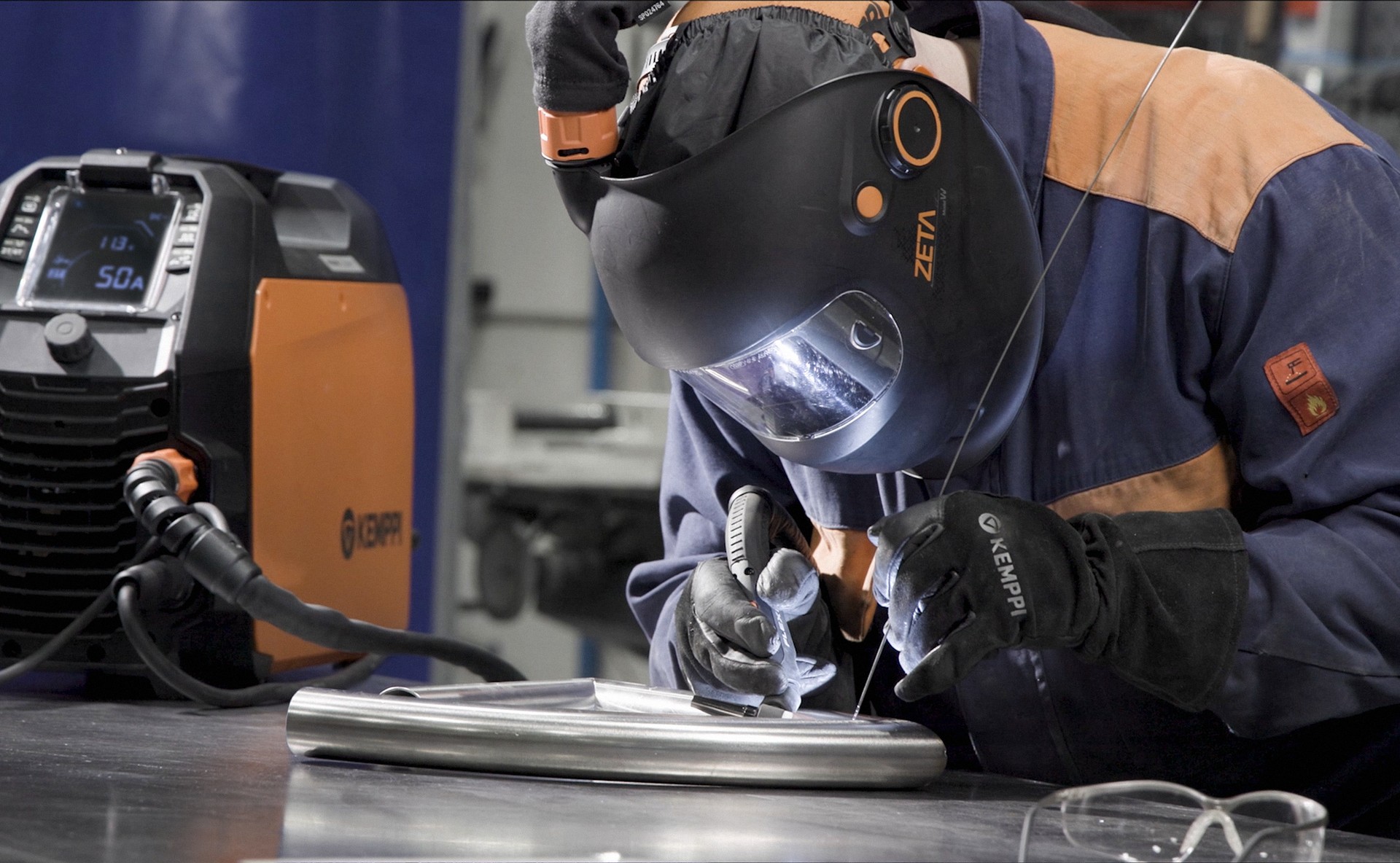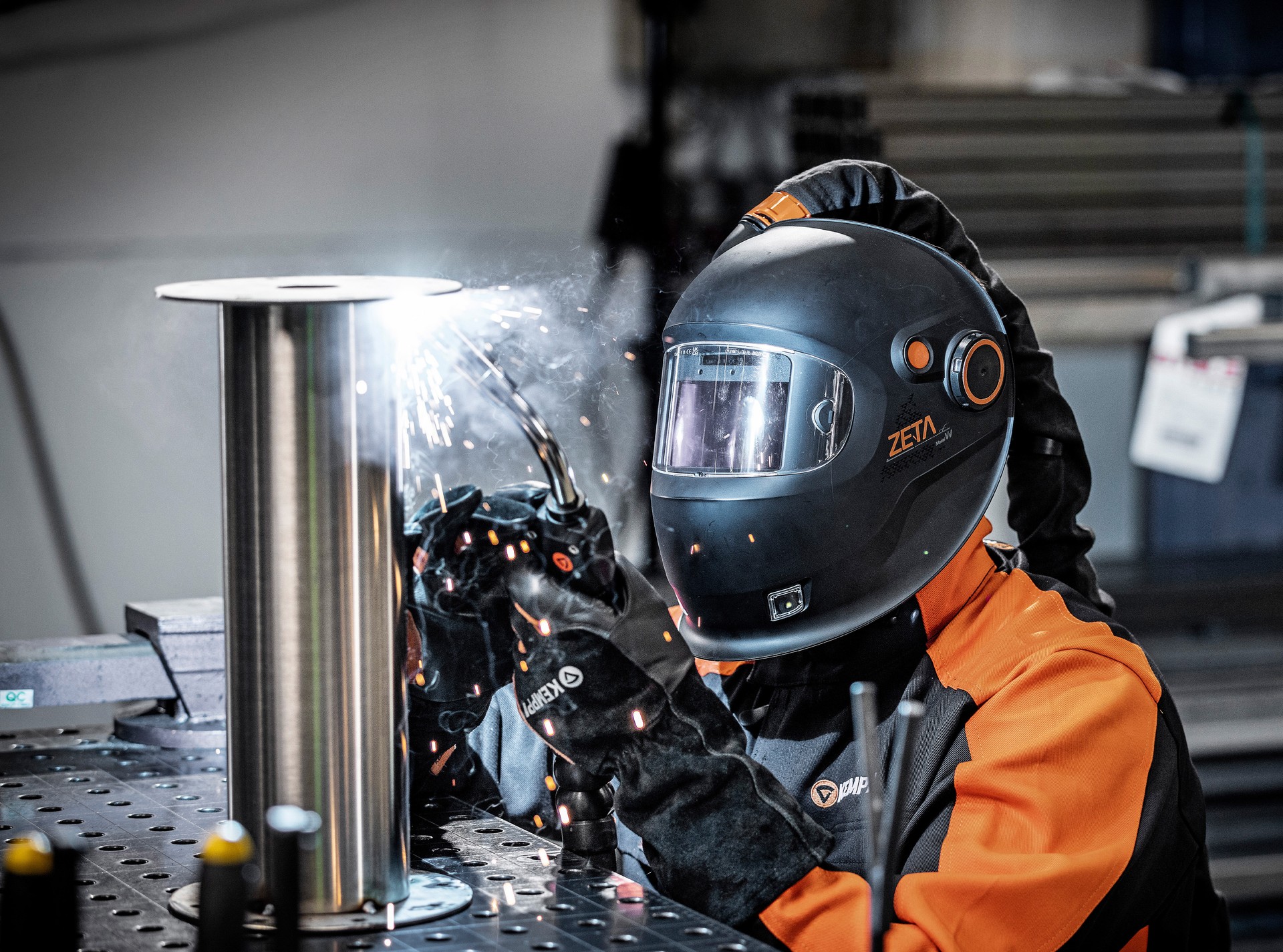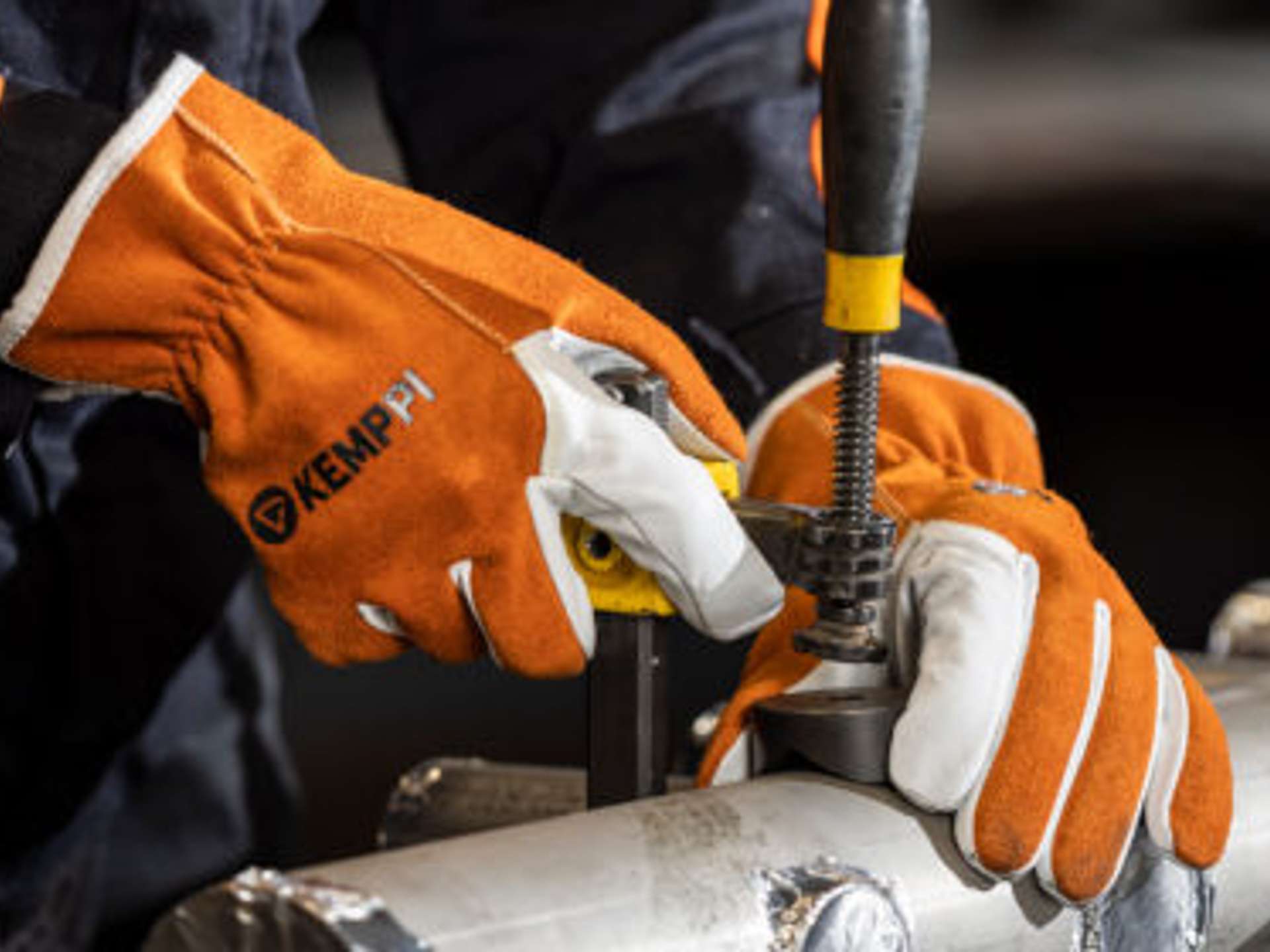
Safety
A welder's best friend
7 June 2023
What’s the most important tool you own? It’s not a wrench, or a screwdriver – it’s your hands! A wrench performs a few tasks really well, but your hands are versatile, precise and adaptable. They can do anything, but they are also vulnerable.
Roger Rasmussen
Here are three things to consider before buying a pair of welding gloves.
1. Know your options
A welder's hands are the key to consistently creating high-quality welds. It's their most important tool, and performance depends on maximizing dexterity and sensitivity while still having proper protection. Using the right welding glove matters.
Balancing thickness and protection
Welding gloves should be as thin as possible while still offering full protection. It's a delicate balance that is directly connected to the type of welding you're doing. A reliable glove provider is meticulous about getting this right across the range.
For tasks where direct feeling is the most important feature, the Kemppi Pro TIG welding glove is an unlined full leather welding glove with a palm thickness of 0.8-0.9 mm. But when heat levels rise, you need the Kemppi Pro MIG welding glove – it balances dexterity and protection with a 4mm padded palm and heavy fleece on the back of the hand.
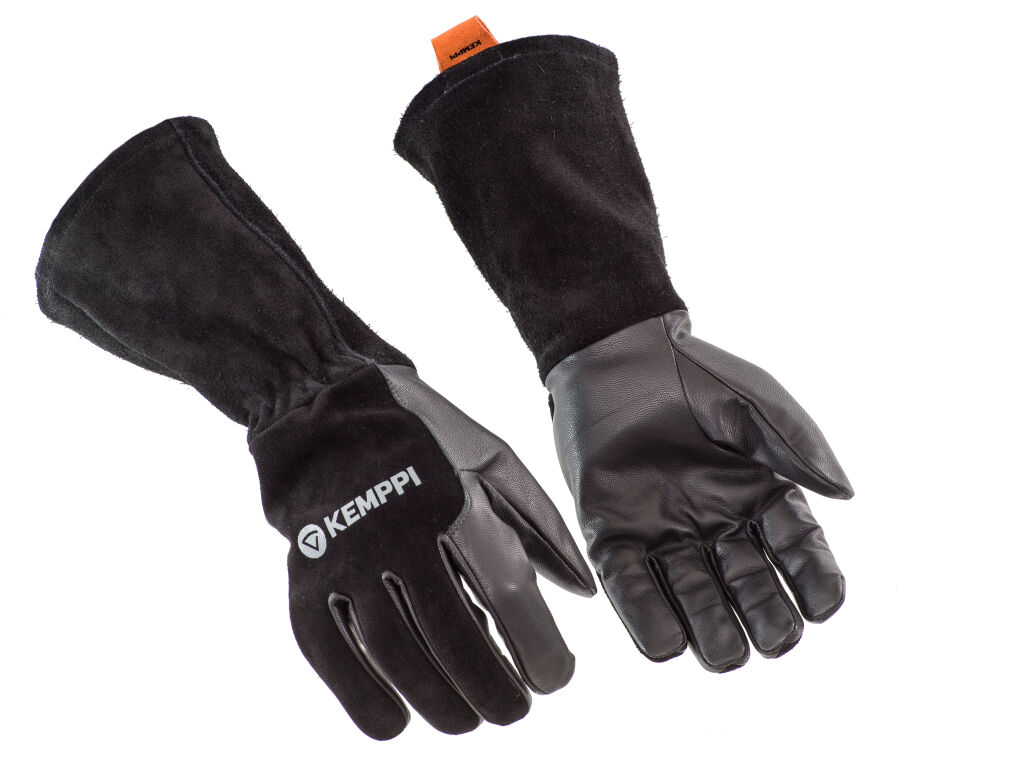
Pro TIG welding gloves

Pro MIG welding gloves
Task-specific gloves
Your glove provider should also be a welding expert. If they are knowledgeable about welding, they will create different gloves for different needs.
Kemppi has you covered with a fabricator short glove for basic workshop tasks, a TIG welding glove for maximum sensitivity, a partially insulated MIG welding glove for both heat protection and dexterity, and a fully insulated MAG/TACK welding glove for high heat welding.
All four types of gloves are available in a Pro line, or if you just need good protection and dexterity with standard features, the Craft line has the same four types of gloves.
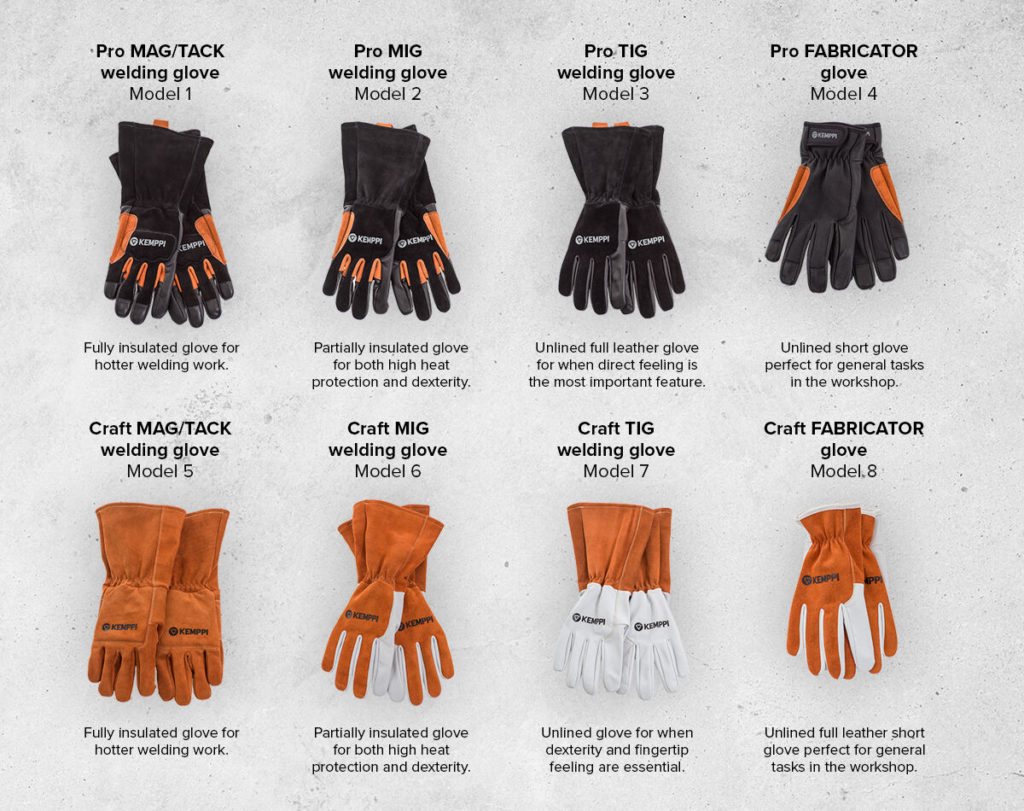
2. Prioritize quality and durability
It should be easy to forget about welding gloves because they work best when you don’t notice them! A good welding glove never gets in the way.
An extension of your hand
Kemppi gloves are specifically designed to help you forget about them. Through a combination of materials and precise design, finger alignment is optimized to prevent you from being distracted by the seams, and pre-curved fingers give you the “ready-to-work feeling” when they are new while reducing hand fatigue on long workdays.
Create a bond with your gloves
Welding gloves are with you every day, throughout the day. And when they last for a long time, using the same pair becomes a comfortable part of your routine.
But it’s not easy to make gloves that last. Materials matter, and Kemppi uses high-quality leather to maximize the durability of its welding gloves.
Extra protection can also extend the life of a glove. For example, the Kemppi Pro MIG welding glove has a piece of cow-split leather at the base of the palm for abrasion resistance, and the Kemppi Pro MAG/TACK welding glove has knuckle protection, as well as reinforced leather in key places on the glove.
Using well-designed gloves for a long time makes welding easier.
3. Choose the right brand
When a company offers some of the best welding machines and torches, it’s highly likely that their gloves are great as well. Kemppi has been the forerunner of arc welding industry for over 70 years, and their gloves are created with a welder’s unique needs in mind.
Get your next pair of gloves from a knowledgeable welding company. Kemppi welding gloves are certified to meet all applicable international safety standards.
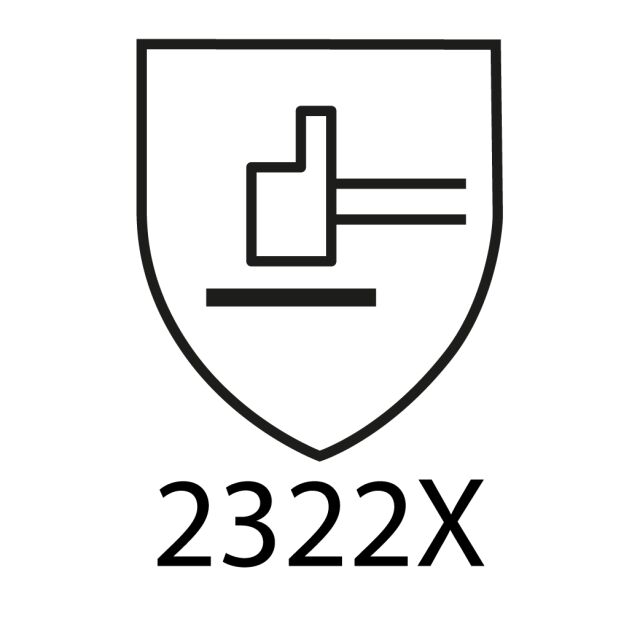
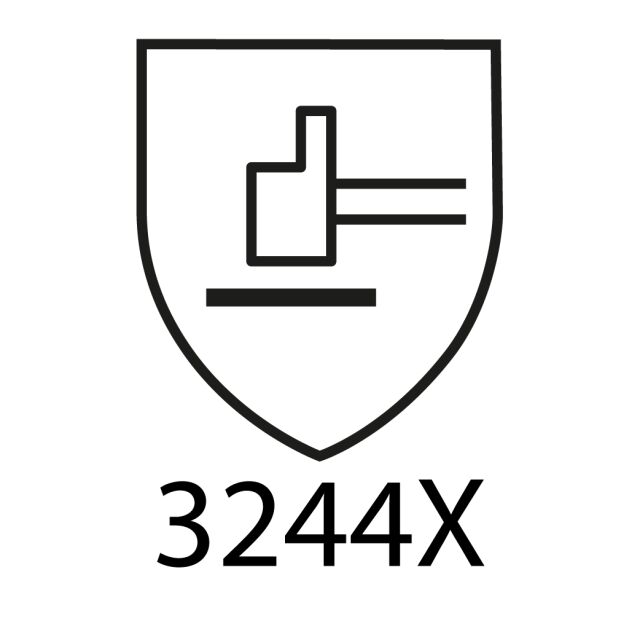
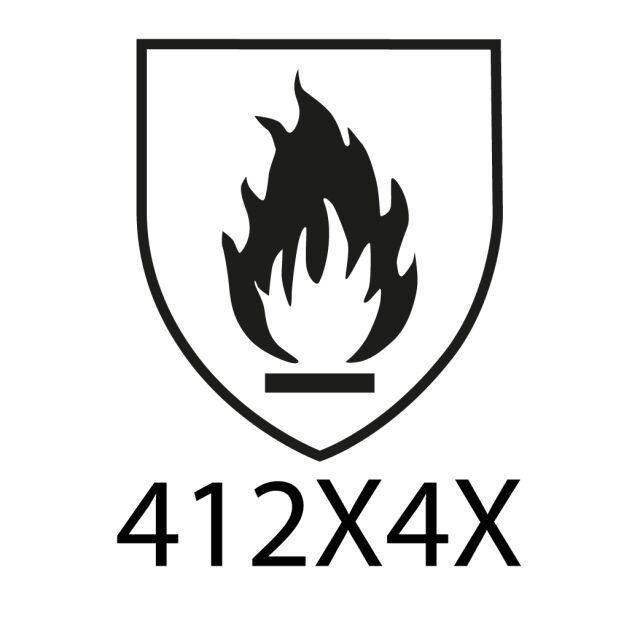
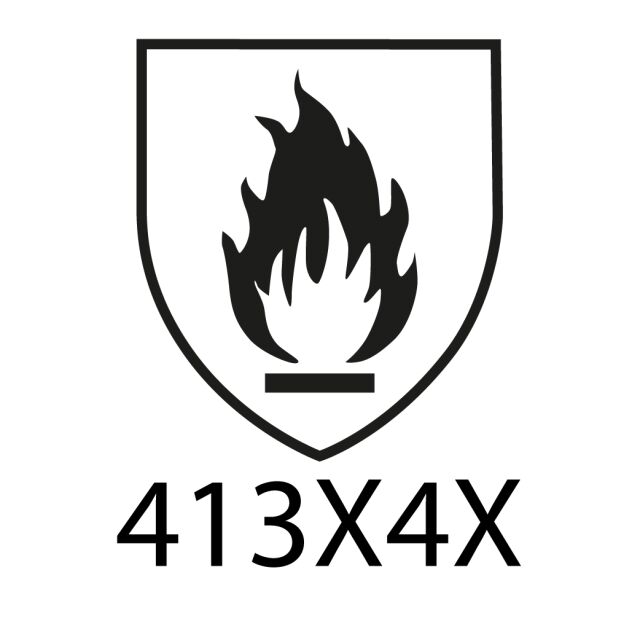
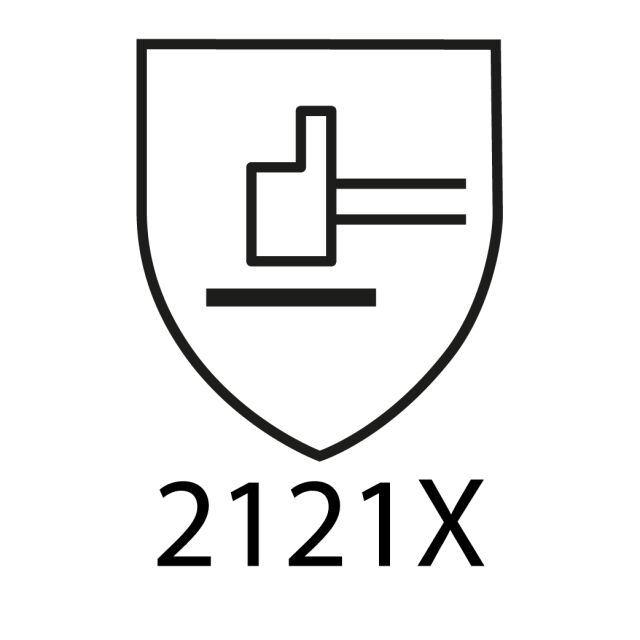
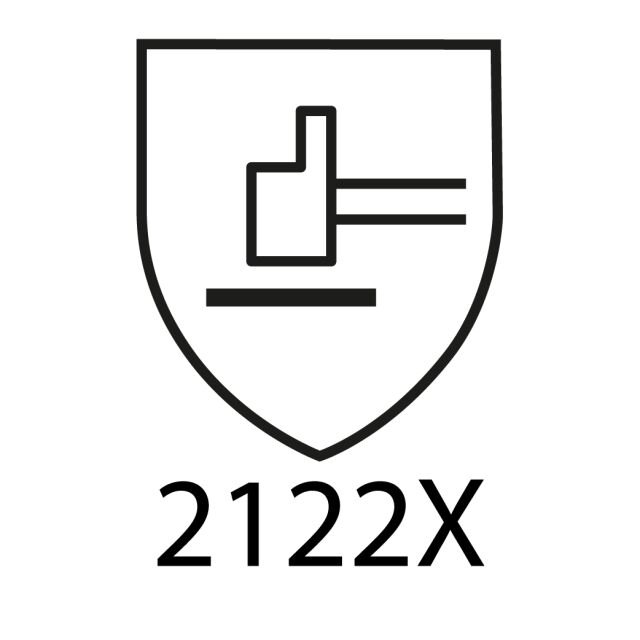
Check the technical specifications for glove-specific standards on the product page.
A good pair of gloves are a welder's best friend!

Roger Rasmussen
Roger Rasmussen
Vice President, Torches, Consumables and Safety at Kemppi Oy
